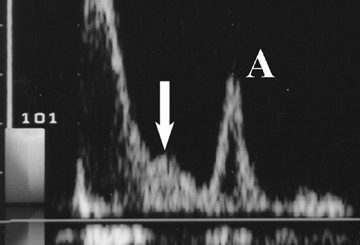Bell’s palsy
Contents
- 1 Most common cause of one-sided facial nerve paralysis –
- 2 Bell’s palsy may present with loss of taste sensation –
- 3 Which of the following is caused by Bell’s palsy ?
- 4 Which type of involvement seen in Bell’s palsy?
- 5 All muscles are innervated by Facial Nerve EXCEPT –
- 6 Which of the following score is used to grade the degree of nerve damage in a facial nerve palsy?
- 7 Most people with Bell’s palsy start to regain normal facial function within –
- 8 What is the recurrence rate of Bell’s Palsy?
- 9 Even without treatment——— of patients in Bell’s Palsy will have complete resolution.
- 10 What is the median age of onset in Bell’s Palsy?
- 11 Most common finding in Bell’s Palsy is –
- 12 Bell’s Palsy symptoms reach a peak in severity on –
- 13 In-Shorts
- 14 House-Brackmann Facial Nerve Grading System
Most common cause of one-sided facial nerve paralysis –
A. Bell’s palsy
B. Tumor
C. Stroke
D. Lyme Disease
Bell’s palsy may present with loss of taste sensation –
A. Anterior 1⁄3 of the tongue on the affected side
B. Anterior 2⁄3 of the tongue on the affected side
C. Posterior 1⁄3 of the tongue on the affected side
D. Posterior 2⁄3 of the tongue on the affected side
Which of the following is caused by Bell’s palsy ?
A. Melancholia
B. Misophonia
C. Autophonia
D. Hyperacusis
Which type of involvement seen in Bell’s palsy?
A. Supranuclear
B. Nuclear
C. Upper motor neuron
D. Lower motor neuron
All muscles are innervated by Facial Nerve EXCEPT –
A. Stylohyoid muscle
B. Posterior belly of the digastric muscle
C. Anterior belly of the digastric muscle
D. Stapedius muscle
Which of the following score is used to grade the degree of nerve damage in a facial nerve palsy?
A. Waterlow score
B. Krenning score
C. House–Brackmann score
D. Centor criteria
Most people with Bell’s palsy start to regain normal facial function within –
A. 3 days
B. 1 week
C. 14 days
D. 3 weeks
What is the recurrence rate of Bell’s Palsy?
A. 5% to 7%
B. 8% to 12%
C. 15% to 20%
D. 20% to 30%
Even without treatment——— of patients in Bell’s Palsy will have complete resolution.
A. 50%
B. 70%
C. 90%
D. 100%
What is the median age of onset in Bell’s Palsy?
A. 15 years
B. 25 years
C. 40years
D. 60 years
Most common finding in Bell’s Palsy is –
A. Bilateral facial weakness that includes the muscles of the forehead.
B. Unilateral facial weakness that includes the muscles of the forehead.
C. Bilateral facial weakness that excludes the muscles of the forehead.
D. Unilateral facial weakness that excludes the muscles of the forehead.
Bell’s Palsy symptoms reach a peak in severity on –
A. 7 hours
B. 36 hours
C. 72 hours
D. 5 days
In-Shorts
| Waterlow score | Risk for the development of a pressure sore | |
| GMFCS scale | Describes the gross motor function of people with cerebral palsy | |
| Krenning score | Grade the uptake intensity of neuroendocrine tumors on somatostatin receptor imaging such as octreotide scan. | |
| Centor criteria | Identify the likelihood of a bacterial infection in adult patients complaining of a sore throat. | |
| Eagle score | Estimate of a patient’s risk of dying during heart surgery |
House-Brackmann Facial Nerve Grading System
House-Brackmann Facial Nerve Grading System can be used to describe the degree of facial nerve weakness.





